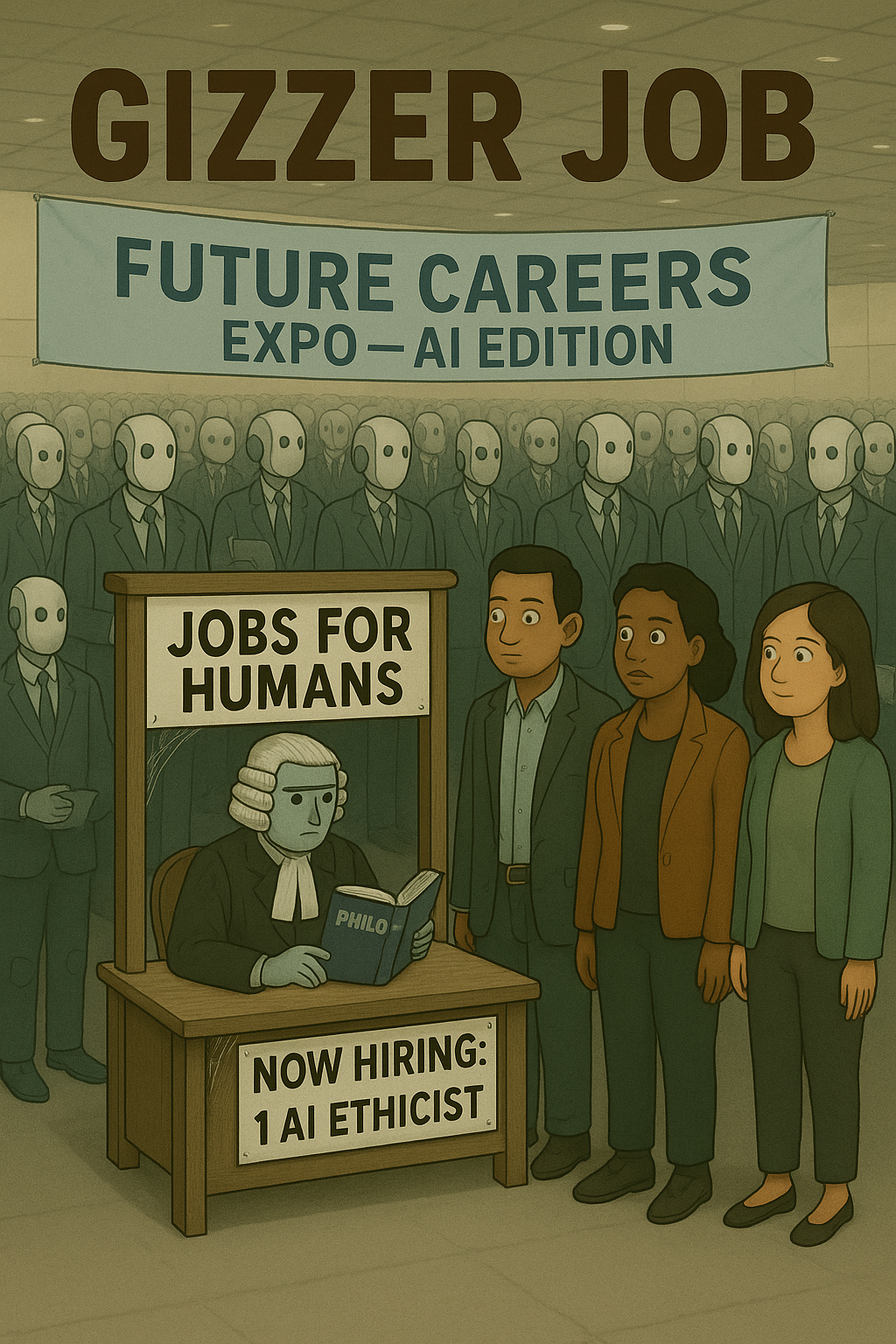Blind Unemployment And How Many AI Ethicists Does The World Really Need?
Employment is a rare state for blind people. In contrast, jobs for the population at large are much more plentiful, but many of these jobs are at risk from AI replacement. What will the new jobs be, what jobs will stay and what jobs will go. Career choice matters.

If you or your child or grandchild are preparing to join the job market, here are two pieces of advice:
- Try really, really hard not to go accidentally blind
- Think deeply about which jobs are least likely to be made obsolete by AI.
You can misjudge whether university would be better than apprenticeship, you can choose the wrong vocation or you can choose the wrong institution, but there are very few ways to fuck up your employment prospects more comprehensively than by going blind.
75% of blind people of working age are unemployed. Put another way, only 1 in 4 blind people in the job market have a job. I am incredibly fortunate to have been in outrageously well paid employment ever since leaving education. Until literally 2 years ago I always advised young people to consider my own career, software engineering, as a well paid source of plentiful employment.
But with the most recent advances in the capabilities of Large Language Models like ChatGPT, software engineering may ironically be one of the first professions to be decimated by AI. Writing code is a largely solved problem on a par with writing CVs, writing exam essays or writing legal contracts.
A recent article heralding the demise of software development as a career optimistically offered the other side of the coin, where new jobs would emerge such as the need for AI Ethicists. FFS this is like an industrial baron telling thousands of consequentially unemployed agricultural workers not to worry because he’d endowed a new philosophy chair at Oxford. So come on guys, just learn to read, spend 5 years immersing yourself in Socrates, Kant and John Stuart Mill, then compete amongst yourselves for the one new job I’ve created. According to ChatGPT, AI Ethicist is too much of a niche profession for there to be any meaningful stats, but even optimistically an organisation of 10,000 people in a highly regulated sector, using AI to replace thousands of desk jobs might employ 2 AI Ethicists.
More constructively there are some jobs which appear to be immune to AI displacement for at least the next few years. If there is very little written down about a job then it’s hard for AI to learn how to do it. So jobs such as stone masonry or tree surgery that rely on many years of hands on apprenticeship are safer than for example junior lawyers or social media influencers. Jobs where a personal touch really matters, such as high end hospitality, will survive in a world of pseudo-fine dining restaurants manned by humanoid robotic serving staff with automated kitchens. And AI is more likely to help, rather than displace, site surveyors for window refurbishment in historic buildings.
My bottom line is that there feel to be more professions than trades or crafts that are vulnerable to AI displacement. Overall, I struggle to see how new jobs such as AI ethicists, space robot tele-operators and synthetic data curators can even scratch the surface of the massive job displacement in most desk bound work. But hey, if this does lead to 75% unemployment in the population at large, then at least the blind community are back on a level playing field. Sorry to be flippant, this is actually a very serious topic likely to play out during the working life of anyone in education today. So career choices do matter.